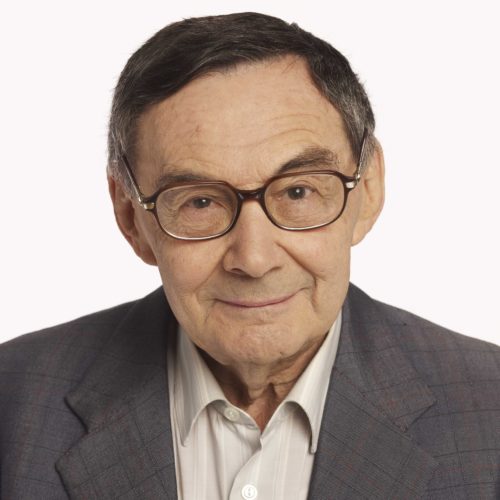

Marian
Turski
related events
Grzegorz Gauden
Lviv: end of illusion.
Story of the November 1918 pogrom
H/history18.08., godz. 17:00
Marian
Turski
His life would be enough for a few dozen people. Born in 1926 in Druskininkai (then part of Poland), he went to school in Lodz. His teenage years in the times of scorn – the ghetto in Lodz, the Auschwitz and Buchenwald concentration camps, the resistance, two death marches – affected his whole life.
After the WWII, he studied law and history at the University of Wrocław. In Wrocław, he started working as a journalist. After Polish October of 1956, the editor-in-chief in Sztandar Młodych, the chief of the historical section of Polityka weekly for 60 years, and the author and co-author of over 800 articles, he conceived numerous campaigns by Polityka regarding historical accounts and the weekly’s historical award, whose 60th anniversary was celebrated this year. Thank to Marian Turski, most notable Polish historians collaborate to make the award happen every year.
A copybook intellectual: well read, polyglot, interested in the world, people, and events, with an eye for detail and great memory. A devout leftist, whose viewpoint was shaped by the union left he got to know in the ghetto, he is sensitive to people’s suffering and social injustice in both Poland and abroad. He is known for his support for the decolonisation of Africa. He took part in the Selma to Montgomery marches with Martin Luther King in 1965.
For 50 years, he has been involved in building Polish and Jewish relations, supported Polish-German friendship, and commemorated the Jewish traditions in Poland. He has been awarded numerous honours including the Commander's Cross of The Polonia Restituta Order, The Legion of Honour, and The Order of Merit of the Federal Republic of Germany.
Moreover, he is also: Vice-President of the International Auschwitz Council, Chairman of the Museum of the History of Polish Jews, Vice-Chairman of the Jewish Historical Institute, Member of the council of the House of the Wannsee Conference Educational and Memorial Site. He was invited by the United Nations Secretary-General to speak in January 2019 at The United Nations General Assembly dedicated to the victims of Holocaust and human rights.
pic. from the Polityka's archive



